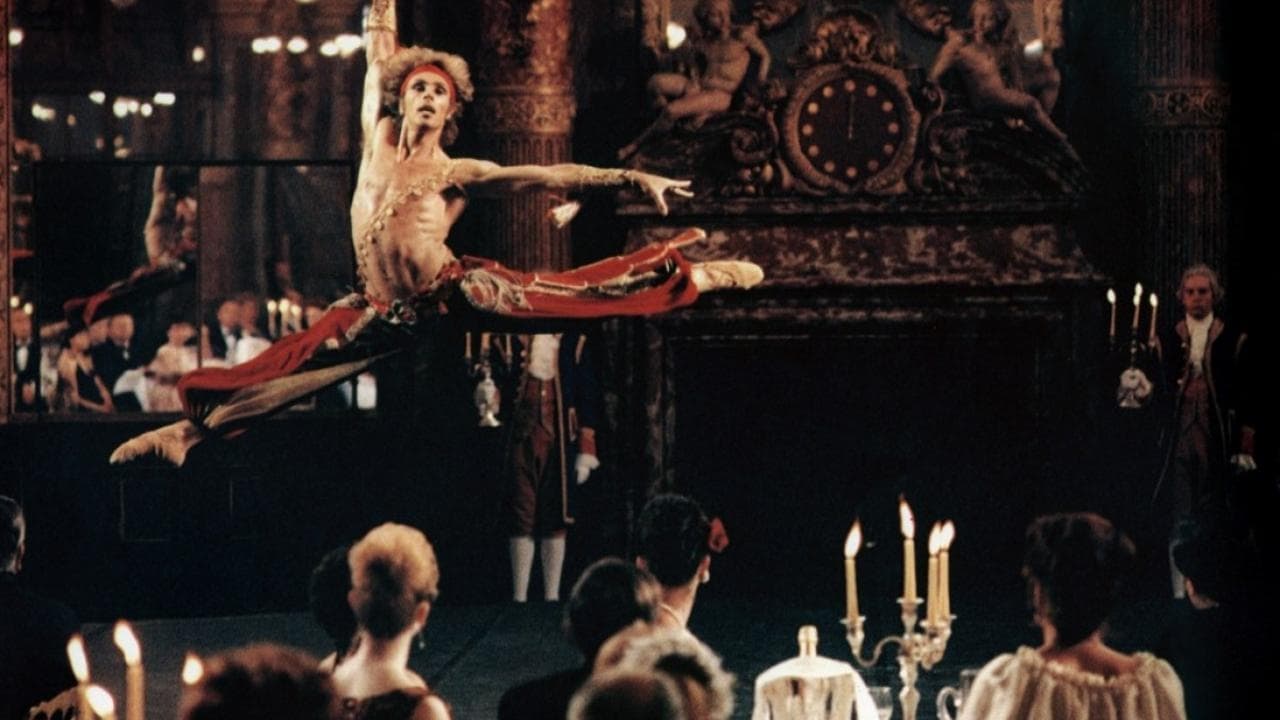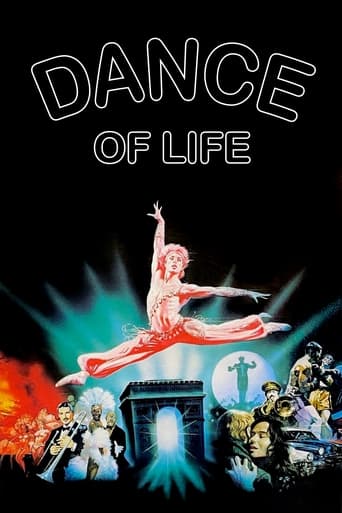

First thing to bear in mind is that like Hossein's "les Miserables" or Enrico's "Au Nom de Tous les Miens",the movie which was theatrically released is a digest of a miniseries ,the running time of which exceeded six hours.In three hours,there are too many characters ,and Lelouch uses the same thespians to portray the parents and the children (Chaplin,Caan,Bouix...)which sometimes is a mess.But it's Hossein who gets the biscuit:even "made look younger" ,he was 54 at the time and it's impossible to believe he is a soldier coming back from the Algeria war.It can be looked upon as a musical ,but the only musical sequence which is really awesome is Ravel's bolero where the four (French,Russian,German and American) families prove us (as if we did not understand) that it's better making music than making war.Thank you and God bless you all.That said ,there's that optimistic bourgeois side in Lelouch's movies;it's so glaring here that it becomes sometimes unbearable.With a few exceptions (Garcia's husband,the girl who used to play around with the Germans,victims of war),it's a success story.We deal with educated brilliant people whose career will take them to megastardom after the war.There's a French film made up of sketches called "Retour à la vie" which depicted the fates of four men and a woman after WW2.Their future was not so bright: the concentration camps ,it's not a thing you forget overnight.You are going to say,Nicole Garcia ends up in an insane asylum.Probably but long after the war.In "Retour à la vie" Aunt Anna was so weak and so traumatized she could not utter one word.The cast is admittedly impressive.But if the leads were not played by celebrities such as James Caan,Geraldine Chaplin or Fanny Ardant,we would be lost in a terrible mess.Ansd sometimes I must confess I do not know if it's the father (mother) or the son (daughter).And Lelouch spared us the third generation (they are still brats).To think that the last part of "Toute une Vie" (1974) another extravaganza which spanned a century,the last part was pure sci-fi and took us down to the future world! Les uns will like.Les autres won't.
... View MoreI just watched Bolero for the umpteenth time and it gets better each time. The film works on so many levels--character complexity, theme, emotion--that it stands up to many viewings. Lelouch is a Romantic, but knows when to stop, in the French tradition. His use of silence to convey emotion, especially near the end when David finds his mother is extremely poignant.Lelouch also gets incredible performances from his actors.This film deals with identity, war, lost love, and redefining oneself. it is profound while being entertaining. A true work of art and one of the great films of all time.
... View MoreLife is too short to watch films more than once, but make an exception for this Masterpiece.The threads are thinly woven - the Russian Ballerina, the German Pianist, the American Bandleader, the Parisian musicians. Their stories cross tangentially, and in a film with almost no dialogue the music drives them on through three generations.This is a movie about love and family and emptiness and death, but also about redemption despite the complete lack of sentimentality in the film. The climax to the thread about the search of the mother for her son is unbearable to watch, despite being held in still-frame longshot. Every action, every nuance, every gesture...This is a movie of recurrence - the scenes in the Paris station with first the Jews, then the Germans being herded onto the train, then finally the TV special. The way in which the American Bandleader whistles to his father, then his daughter's husband whistles to her in the same way. Even the recurring shots of the blind accordionist.Possibly the ending is too neat. Perhaps the threads should remain frayed around the edges. But the symmetry of the overall structure reinforces the theme of redemption over many generations and through love. The 20th century has seen many horrors, but this is an optimistic film.I cannot recommend this movie too highly.
... View MoreThis effort of the French cinema-world to look beyond its own borders has been quite succesful in that the story covers three continents and breathes different cultures and different times, using very different musical genres. Though some storylines end in nothing (in a typically French way), there are enough plots to build up to a climax which Ravel could not have surpassed. In the final scene some people sit together and make music music together and only we know how closely related they are. The eyes (and arms!) of the conductor of a German army-band on Place de l' Etoile when two Parisian hookers smile at him, is unforgettable.
... View More